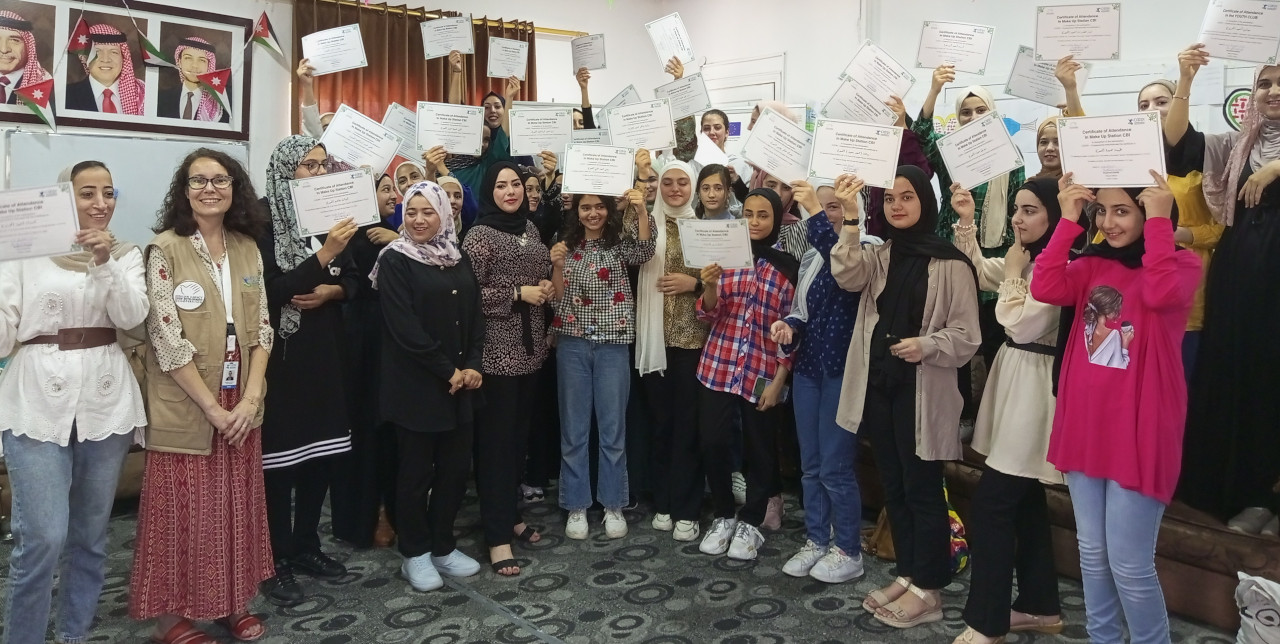10-10-2022 | di COOPI
Jordan. Teenagers as promoters of their own rights
In the north-west of Jordan, due to the syrian crisis that has affected the country, services dedicated to children and adolescents are minimal: meeting places are lacking and organisations that provide support and assistance to minors are struggling.
In this context, COOPI - Cooperazione Internazionale intervened through the project "Sawian - Strengthening social protection services for vulnerable adolescents and their families in the host and refugee communities of Amman, Irbid and Russeifeh", in partnership with ICU - Istituto di Cooperazione Universitaria and financed by the Italian Agency for Cooperation and Development (AICS). The project aims to improve the living conditions of the adolescents, refugees and Jordanians, most vulnerable and negatively affected by the consequences of the Syrian crisis in Jordan. Furthermore, it aims to decrease the risk and exposure to phenomena such as child labour, early marriage, abuse and other forms of sexual and gender-based violence, through an integrated system of social protection services, economic support and community involvement of the adolescents.
One of the main activities carried out during the project was the creation of 'Youth Clubs': these were a safe space for boys and girls to meet and share, where they could find support and answers to various issues, needs and requirements. In total, 75 teenagers between the ages of 12 and 17, residing in the villages of Erhaba and Dier Yousef (Irbid Governorate), in the town of Rusaifah (Zarqa Governorate) and residing in East Amman, took part in these activities.
From January to April 2022, the boys and girls participated in weekly meetings to discuss issues that affect them closely: their inalienable rights, their protection, the importance of creating a more inclusive community that protects children and the most vulnerable.
Subsequently, in May and June, the teenagers focused on planning initiatives and projects based on the themes of the previous meetings. The teenagers entirely conceived and planned a sign language course for children and adults, the rehabilitation of a small playground, the distribution of recycling bins, the creation of a community bookshop, and the creation of murals, in public places and schools, centred on the defence of children's rights.
One of the leaders of the activities in Rusaifah, north of Amman, says:
The initiative has had a positive effect on the children, particularly on their civic education and character development. At school, they do not have the opportunity to focus on their own projects and to discuss the topics covered during the meetings, plus the opportunities for discussion and debate are very limited. The pupils devised and presented a community initiative idea and subsequently put it into practice by making their own contribution, informing themselves about the cost of the initiative, promoting it within the community and actively participating. For example, for the rehabilitation of the renovated playground, they participated by making some decorations and unleashing their creativity. The park is now used every day by children, especially in this area where children and young people have nowhere to go. Now this space is a safe place to meet and gather. The activity has been appreciated by the community and identified as one of the ways to prevent violence and neglect against children and to create safe spaces for teenagers.
Jordan hosts more than 670,000 Syrian refugees, mostly concentrated in the urban and suburban areas of the capital and the north of the country, a number that constitutes about 7% of the population. COOPI has been working in the country since 2017, mainly in Amman and the north of the country. Through interventions to promote educational access, related to child protection, prevention of sexual and gender-based violence, as well as psycho-social support, it aims to mitigate the impact of the humanitarian crisis and pandemic on both the Jordanian population and refugees.




 Jordan
Jordan
